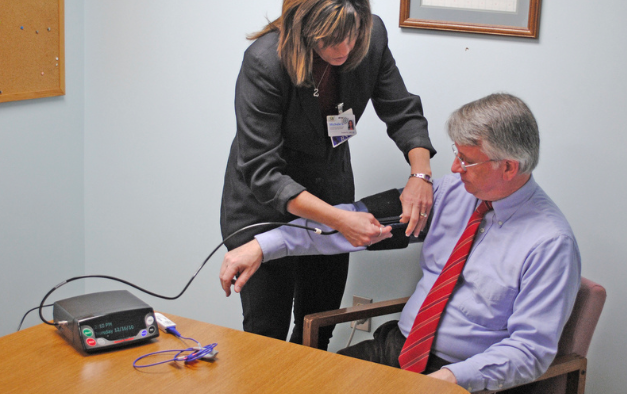A key provision of the Affordable Care Act is going into effect today as statewide insurance exchanges open up around the country.
But that’s just the latest in a series of changes to the U.S. health care system that will open up new opportunities for entrepreneurs.
With the passing of the Health Information Technology for Economic and Clinical Health (HITECH) Act in 2009, doctors got new incentives to move from paper-based to digital systems. As a result, investors poured funding into new electronic medical record providers, like CareCloud and Practice Fusion. Since then, doctors’ use of electronic systems has shot up — in May, the department of Health and Human Services announced that doctors’ and hospitals’ use of health IT has nearly doubled since 2012.
Smart entrepreneurs are paying equally close attention to the Affordable Care Act (ACA, also known as Obamacare). We’ve already seen new companies form to offer private health insurance exchanges so consumers can shop for affordable care. These exchanges are open for business today, Oct. 1, enabling individuals to sign up online, by phone, or in-person, with health insurance coverage starting next year.
However, top health investors are thinking about the long-term impacts of the ACA, the biggest expansion in coverage in nearly 50 years. I caught up with investors from Emergence Capital, Venrock, Kleiner Perkins Caufield & Byers, and Google Ventures at a health IT dinner earlier this week to discuss new opportunities for health-tech entrepreneurs.
Here’s what these expert investors think are the hot areas for health-tech startups to focus on.
Remote patient monitoring tools and wearables
A Boston-based health care system, Partners Healthcare, invested in a new suite of devices and tools to monitor patients at home and on the go. The “connected health” program was an expensive endeavor, but Partners reported promising early results.
Partners may be among the first to experiment with a connected health initiative, but it certainly won’t be the last. The goal of the ACA is to help hospitals move from volume-based care to value-based care, meaning that doctors won’t make money by ordering expensive tests. Instead, physicians will be motivated to keep patients healthy and prevent readmissions to the hospital.
Doctors in the Partners network use new devices that can track and monitor patients at home. According to a recent estimate by Rock Health, investors have already poured $102 million into the development of these new devices.
Entrepreneurs are building some seriously cool devices to track body metrics, like a patient’s blood pressure and heart rate. Patients with chronic conditions, like diabetes, are purchasing glucometers, blood pressure cuffs, smart Wi-Fi scales, and pulse oximeters. Check out InformationWeek‘s list of the most promising remote patient monitoring devices.
During its pilot, Partners Healthcare also pulled in data from fitness-tracking devices, like Fitbit and Jawbone UP, which determine calories burned and your number of steps taken.
Wearable technology will continue to generate a great deal of hype, but it could reach a mainstream market if the data proves to be useful for doctors.
Population health management
Earlier this week, a two-year-old startup called Evolent Health raised an unprecedented sum of money for its series B. With $100 million in new funding, Evolent plans to sell its “population health management” software to hospitals around the country.
Population health management is a huge buzzword in the health industry. Broadly speaking, it refers to the suite of software tools hospitals and other care providers use to streamline the quality of care by identifying high-risk patients and monitoring clinical outcomes. Physicians aren’t just administering care to one patient at a time — they are thinking more broadly about trends and improving outcomes for whole populations.
Evolent is just one of the startups that has recently emerged in this space. Evolent’s chief executive Frank Williams recently told me the company is already making “tens of millions,” with hospitals thinking differently about care delivery in the wake of the ACA. The company’s software pulls in relevant health data from multiple sources to identify at-risk patients, and suggest targeted treatment options. It makes all this data available to physicians, who are alerted if patients are skipping medication or exhibiting signs of an infection or illness.
Innovative primary care providers
Krishna Yeshwant, a health investor at Google Ventures, is keeping a close eye on new models for primary care. The new options for patients include One Medical (a Google Ventures investment) and Iora Health.
These concierge-style medical clinics are suited to different patient populations, but they share one thing in common: Both use technology to engage patients between doctor visits. It’s a preventive care model that is designed to save money in the long run.
Yeshwant said that primary care will do very well in the wake of health reform, as doctors face incentives for treating patients in the outpatient setting and keeping them healthy once they’ve been discharged. This is the same set of federal requirements that will also kickstart adoption of remote patient monitoring devices.
Related: How Iora Health is bringing affordable health care to residents of downtown Las Vegas.

Above: A One Medical clinic in San Francisco. The slogan? “The doctor’s office. Reinvented.”
Telemedicine
Most physicians would opt to dedicate the bulk of their time to caring for the very sick and dealing with tricky cases. However, primary care doctors and specialists may still want to check in with their patients on a regular basis. This is where telemedicine comes in: New communications technologies promise to safely and securely provide clinical care from a distance. For routine checkups, a remote teleconference is a more effective use of time for both the doctor and the patient.
In other words, it may soon become the norm to video chat with your doctor.
Already, we are seeing plenty of speculation in the press that telemedicine tools will become vital with the passing of the ACA. Another benefit is that people who live in rural areas can communicate with a physician, as long as they have an Internet connection.
Data/analytics tools
Yeshwant believes data and analytics will play a stronger role in the future. Certainly, doctors will be able to access far more data than ever before, pulled in from all these new remote patient monitoring devices, publicly available sources, and electronic health records.
On a far more practical note, Yeshwant believes that physicians will need analytics tools to track their accounting and budgets. This will open up opportunities for technology entrepreneurs, even those without a strong grounding in health care.
“As incentives change we will need to manage operations and expenses much more closely,” said Yeshwant. “Hospital systems that view IT as an asset rather than a cost will win and everyone else will likely struggle.”


